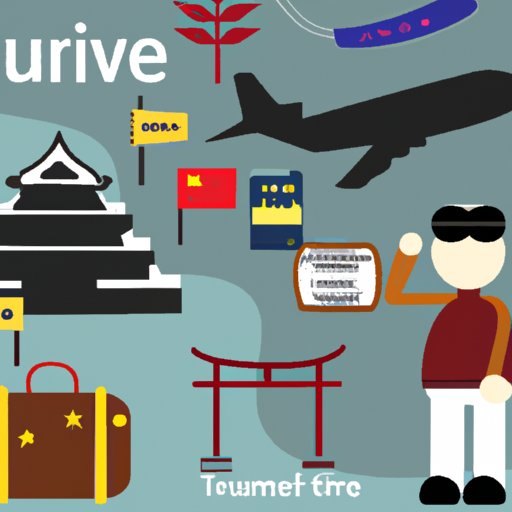Introduction
Culture shock is the feeling of disorientation, confusion, or anxiety experienced by someone who has moved to a new country or environment that has different customs, values, and norms than their own. It can be an overwhelming experience, but it’s important to remember that it is a normal part of the adjustment process and will eventually pass. In this article, we’ll explore several tips and strategies that can help you overcome culture shock.

Research the Culture and Customs of the New Country Before You Go
Before you move to a new country, it’s important to do some research on the culture and customs of the place you’re going. This will help you gain a better understanding of the new environment and give you more confidence when you arrive. Knowing what to expect and having a basic knowledge of the language and customs can make the transition smoother.
There are many resources available online where you can find information about the culture and customs of the new country. Websites like Expat.com and World Nomads offer detailed guides on everything from cultural etiquette to language tips. Additionally, there are many books, magazines, and websites that provide information on the history, culture, and customs of the new country.

Learn the Language of the New Country
Learning the language of the new country is one of the best ways to overcome culture shock. Not only will it help you communicate with locals, but it will also give you a greater understanding of the culture and the people. Even if you don’t become fluent in the language, having a basic understanding of it can make a huge difference in your experience.
There are many ways to learn a language, such as taking classes, using online resources, or immersing yourself in the culture by speaking with native speakers. Taking a language class can be especially helpful because it allows you to practice and receive feedback from an instructor. Additionally, there are many online resources available, such as Duolingo and Memrise, which offer free language lessons.
Make a List of All the Things That You Miss From Home, and Find Ways to Replace Them in the New Country
It’s natural to miss certain things from home when you move to a new country. To help you adjust, it’s important to make a list of all the things that you miss and then find ways to replace them in the new country. For example, if you miss your favorite coffee shop, look for a similar cafe in the new city. If you miss your friends, try connecting with people who share your interests or come from the same background as you.
Making a list of the things that you miss and finding ways to replace them can be a great way to ease the transition and make you feel more at home in the new environment. Additionally, it can help you focus on the positive aspects of the new country rather than dwelling on the things that you miss.
Seek Out People Who Share Your Interests or Come from the Same Background as You
Connecting with people who share your interests or come from the same background as you can be an invaluable resource when adjusting to a new culture. Having support from people who understand what you’re going through can make the transition much easier. Additionally, these connections can provide you with valuable insights into the new culture, help you practice the language, and introduce you to new activities and experiences.
There are many ways to find people who share your interests or come from the same background as you. Social media platforms like Facebook and Meetup are great places to start. Additionally, attending events and joining clubs and organizations related to your interests can be a great way to meet new people.
Take Time to Explore and Get to Know the Local Area
Exploring the local area is a great way to get to know the new culture and make yourself feel more at home. Visiting attractions, trying new restaurants, and attending local festivals and events are just a few of the ways to experience the culture and learn more about the people and places around you. Additionally, exploring the local area can help you gain a better understanding of the language, customs, and values of the new country.
When exploring the local area, it’s important to take your time and observe the culture. Ask questions, talk to locals, and take note of the things that interest you. The more you explore, the more familiar you’ll become with the new culture.
Stay Positive and Maintain an Open Mind
Adjusting to a new culture can be difficult, and it’s important to stay positive and maintain an open mind. Keeping a positive attitude and being open to new experiences can help you manage the stress of the transition and make it easier to adjust. Additionally, it’s important to remember that culture shock is a normal part of the adjustment process and that it will eventually pass.
To stay positive, it’s helpful to focus on the positive aspects of the new culture. Make a list of all the things that you enjoy about the new country and use it as a reminder of why you chose to move there. Additionally, celebrate small victories and take time to relax and unwind. Taking time to do the things that you love can help keep your spirits high.

Make a Plan for How You Will Adjust to the New Culture
Creating a plan for how you will adjust to the new culture can help you stay focused and motivated. Writing down your goals and developing a timeline can help you stay organized and ensure that you’re making progress. Additionally, having a plan can provide a sense of control and make it easier to track your progress.
When creating a plan, it’s important to be realistic and set achievable goals. Start by making a list of all the things that you want to accomplish, such as learning the language, exploring the local area, or connecting with locals. Then create a timeline for when you want to achieve each goal and break it down into smaller, more manageable steps. Finally, make sure to reward yourself for each accomplishment and celebrate your successes.
Conclusion
In conclusion, overcoming culture shock can be challenging, but it is possible with the right approach. Researching the culture and customs of the new country, learning the language, connecting with people who share your interests, exploring the local area, staying positive, and making a plan for how you will adjust can all help you successfully navigate the transition. With patience and perseverance, you can overcome culture shock and make the most of your experience in the new country.
(Note: Is this article not meeting your expectations? Do you have knowledge or insights to share? Unlock new opportunities and expand your reach by joining our authors team. Click Registration to join us and share your expertise with our readers.)
